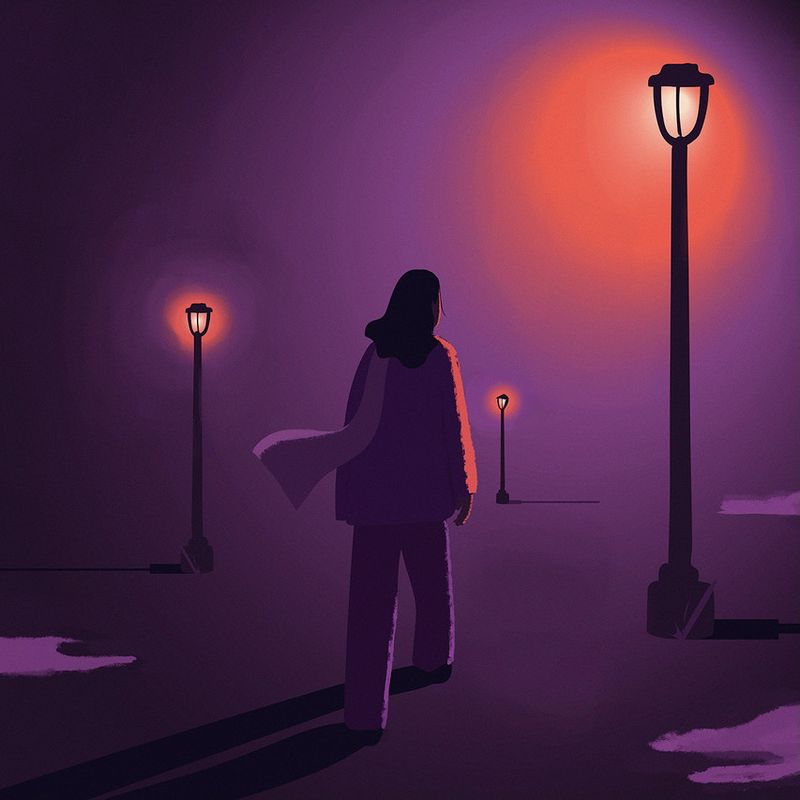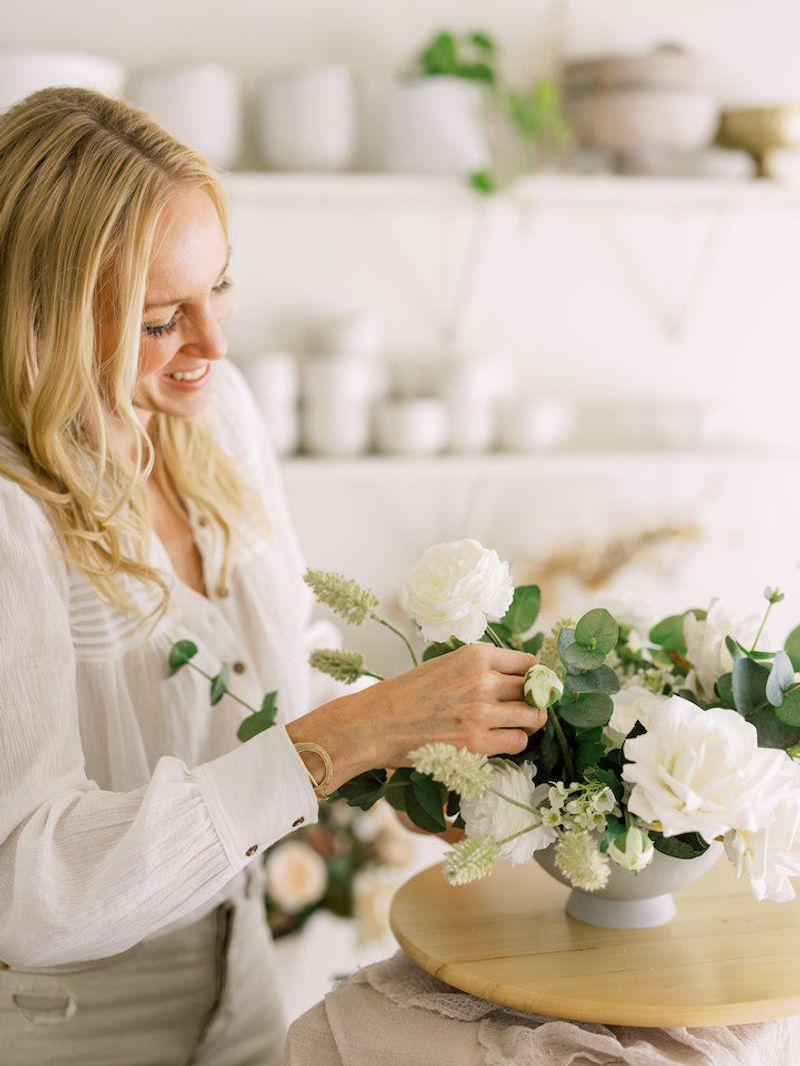In the quiet corners of marriage, comfort can sometimes conceal the subtle signs of settling. This introspective exploration reveals 18 quiet indicators that a wife may be compromising her happiness for the sake of stability.
It’s a gentle look into how routine and resignation might overshadow true fulfillment.
1. She’s Always Tired, But Not From Being Busy
Fatigue becomes her constant companion, but it’s not the kind of tiredness that comes from a busy day. Rather, it’s a weariness of the soul, a heaviness that clings to her despite restful nights.
She moves through her days on autopilot, accomplishing tasks without the enthusiasm she once had. Her energy is sapped not by physical exertion but by emotional lethargy, leaving her yearning for a rejuvenation that eludes her.
In quiet moments, she sits, eyes glazed over, pondering the life she’s leading. Is this fatigue a symptom of settling, or merely a phase that will pass? The questions linger, unanswered, as she continues her daily routine.
2. She Avoids Conflict by Staying Quiet
Silence becomes her refuge as she chooses peace over confrontation. Arguments once sparked by passion now fizzle out before they begin, as she swallows her words to maintain harmony.
The cost of quiet is steep, as emotions build up unexpressed, creating distance where closeness used to be. Her silence is a shield against conflict, but also a wall that separates her from her partner.
Beneath the calm exterior, unresolved feelings simmer, waiting for a moment to be acknowledged. Yet, she fears that voicing her concerns might unravel the delicate balance she’s worked hard to preserve. So, she remains quiet, hoping for change.
3. Her Expectations Are Now Barely Above Zero
Expectations dwindle to the bare minimum, leaving her with little to look forward to. Once, she dreamed of adventures and shared experiences, but now the days blur into one another without excitement.
She no longer anticipates surprises or thoughtful gestures. Instead, she settles for the mundane, the predictable. Her once vibrant hopes have dimmed, replaced by a quiet resignation that this is all there is.
The absence of anticipation creates a void, a longing for something more. But in her heart, she questions whether it’s worth raising her expectations only to face potential disappointment. So, she lets them remain low, avoiding the risk of unmet desires.
4. She Stops Sharing How She Really Feels
In the silence of her own thoughts, she finds comfort, yet isolation. Sharing feelings becomes a thing of the past, as she chooses to internalize rather than vocalize.
The journal that once held her dreams and disappointments now lies untouched, a testament to her withdrawal. Her heart locks away emotions, protecting them from misunderstanding or dismissal.
By not expressing her true feelings, she creates a chasm between herself and her partner. The words she doesn’t speak hang in the air, heavy with the weight of unspoken truth. Yet, she fears that opening up might disrupt the fragile peace they’ve achieved.
5. “It Could Be Worse” Becomes Her Reason to Stay
The mantra “it could be worse” echoes in her mind, a justification for staying in a marriage that lacks fulfillment. She compares her situation to others, finding solace in the fact that her life isn’t as bad as it could be.
As she observes couples around her, she notes the small joys they share, feeling a pang of envy. Her marriage is stable, predictable, but devoid of the laughter and love she once yearned for.
This comparison becomes a double-edged sword, comforting yet haunting. She wonders if settling for less is truly better than risking it all for a chance at more. Still, the fear of the unknown keeps her rooted.
6. The Spark Isn’t Gone—It’s Buried
The flame that once burned brightly now lies beneath layers of routine and responsibility. It’s not extinguished, merely buried under the weight of everyday life.
As she flips through old photographs, memories of happier times surface, bringing a bittersweet smile to her face. The spark is there, hidden but not lost, waiting for the right moment to rekindle.
She holds onto hope that the ember of their love can be fanned back to life. Yet, she struggles with the inertia of routine, unsure how to breathe new life into something that feels stagnant. The potential for reignition lingers, a whisper of what once was.
7. She Laughs Less, Even at Old Inside Jokes
Laughter, once the soundtrack of their shared life, now seems a distant memory. Even the old inside jokes that used to draw giggles now fall flat, their humor faded with time.
As her partner laughs, she finds herself disconnected, the joy that once bound them now elusive. The sound of her own laughter feels foreign, a relic of a happier past.
The absence of humor in their interactions speaks volumes, a silent testament to the distance growing between them. The jokes remain, but the joy doesn’t; a sign that settling has dulled the vibrant connection they once shared.
8. She Fills Her Calendar to Avoid Home
Her calendar becomes a canvas of avoidance, filled with meetings, events, and commitments that keep her away from home. The busier she is, the less time she has to confront the reality of her marriage.
Every appointment is a temporary escape, a chance to focus on something other than the growing emptiness she feels. The rush of activity is both exhilarating and exhausting.
In the quiet moments between engagements, she reflects on the life she’s creating—a life filled with everything except the connection she truly craves. While busyness distracts her, it also highlights the void she’s trying to ignore.
9. She Does More for Others Than for Herself
Her generosity knows no bounds, but it often comes at her own expense. She pours herself into helping others—friends, family, even strangers—finding purpose in service.
Yet, amidst the giving, she neglects her own needs, sidelining her desires in favor of others. The satisfaction she gets from helping is real, but it doesn’t fill the void within.
Her selflessness becomes a mask for her dissatisfaction, a way to avoid addressing the emptiness in her marriage. While others see her as a beacon of kindness, inside she longs for the love and attention she so freely gives away.
10. Compliments Feel Forced or Missing Entirely
The words that once flowed freely now feel stilted or absent altogether. Compliments, once a staple of their communication, have dwindled to rare occurrences, lacking the sincerity they once held.
As she stands by the mirror, adjusting her appearance, she yearns for affirmation that never comes. The silence where praise used to be is deafening, a reminder of the emotional distance growing between them.
When compliments do come, they feel obligatory, lacking the warmth and authenticity she craves. This absence of genuine appreciation adds to her sense of settling, a subtle sign that the intimacy they once shared is fading.
11. She Fantasizes About Freedom More Than Intimacy
Daydreams of freedom now eclipse those of intimacy, as she imagines a life unbound by the constraints of a lackluster marriage. The allure of independence grows stronger, offering a tantalizing glimpse of what could be.
As she watches the sunset, she wonders what life might be like on her own, free from the compromises she’s made. The fantasy of freedom becomes a refuge, a place where her desires are unencumbered by reality.
Yet, these dreams come with a pang of guilt, as she grapples with the possibility of pursuing them. They highlight the distance she feels from her partner, a testament to her internal struggle.
12. She Doesn’t Bother Asking for What She Wants Anymore
The art of asking has faded, as she resigns herself to not being heard. Once vocal about her needs, she now remains silent, convinced that voicing them is futile.
As she sits at the dining table, the meal before her untouched, she reflects on the times her requests were met with indifference or forgotten entirely. The pattern of being unheard has led to resignation, a quiet acceptance of her unmet needs.
This silence is both a shield and a burden, protecting her from disappointment while also stifling her desires. She wonders if her voice will ever matter again, or if settling is simply her new reality.
13. Apologies Come Late—Or Not At All—From Him
Apologies, once a bridge to healing, now arrive late or not at all. The words “I’m sorry” seem to have lost their way, leaving her to navigate the aftermath of conflict alone.
As she stands in the hallway, staring at a closed door, she waits for words that never come. The silence is heavy, filled with unspoken apologies and unresolved issues.
Her partner’s reluctance to acknowledge faults creates a rift, a chasm that grows with each unaddressed grievance. The absence of remorse is a quiet reminder of settling, a sign that their once shared values are slipping away.
14. She Finds Emotional Comfort Outside the Relationship
Friendships become her safe haven, a source of emotional nourishment that her marriage no longer provides. In the company of friends, she finds the laughter and support she craves.
As she shares a laugh over coffee, the ease and joy she experiences contrast sharply with the emotional void at home. These interactions become lifelines, moments where she feels truly seen and appreciated.
Yet, as comforting as these connections are, they also highlight what’s missing in her marriage. The emotional fulfillment she finds outside serves as both a balm and a reminder of the settling she endures within her relationship.
15. “This Is Just How It Is” Becomes Her Mantra
The phrase “this is just how it is” becomes a mantra, a resignation to the status quo. It’s a comforting lie she tells herself to avoid facing the discomfort of change.
As she strolls through the quiet street, her mind echoes with these words, a refrain that both soothes and shackles. It’s easier to accept things as they are than to disrupt the familiar.
This acceptance, though, comes at a cost. It binds her to a life that feels less than fulfilling, a subtle sign that she’s settling. The comfort of routine becomes a trap, holding her back from exploring what might be.
16. She Misses Herself—The Version She Used to Be
In moments of introspection, she yearns for the woman she used to be—vibrant, hopeful, full of dreams. The person she’s become feels like a shadow of her former self, dulled by the passage of time and the compromises she’s made.
As she pages through her old diary, memories of her past aspirations flood back, stirring a deep sense of longing. These reflections reveal the gap between who she is and who she once was.
This nostalgia is bittersweet, a reminder of the settling that has crept into her life. It’s a quiet call to rediscover herself, to revive the parts of her she’s lost along the way.
17. Her Love Feels More Like Duty Than Desire
The love she once felt passionately now feels like an obligation, a duty performed without the fervor it once held. The desire that fueled their connection has given way to routine acts of care.
As she arranges flowers, a task meant to bring joy, her mind wanders to the days when love was spontaneous and consuming. Now, it’s a checklist of responsibilities, devoid of the spark that once ignited her heart.
This transformation from desire to duty is a subtle sign of settling, a shift from what could be to what is. It’s a gentle reminder of the love that’s become a shadow of its former self.
18. She Avoids Asking If This Is Really What She Wants
The question—“Is this really what I want?”—lingers in her mind, but she avoids it, fearing the answer. It’s a truth she’s not ready to face, preferring the comfort of familiarity.
During a solitary beach walk, the vastness of the ocean mirrors her internal struggle. The horizon beckons with possibilities, yet she hesitates, unsure if she’s brave enough to explore them.
Avoiding the question allows her to maintain the status quo, but it also keeps her from discovering what truly fulfills her. This avoidance is a subtle sign of settling, a silent acknowledgment of her inner conflict.



















